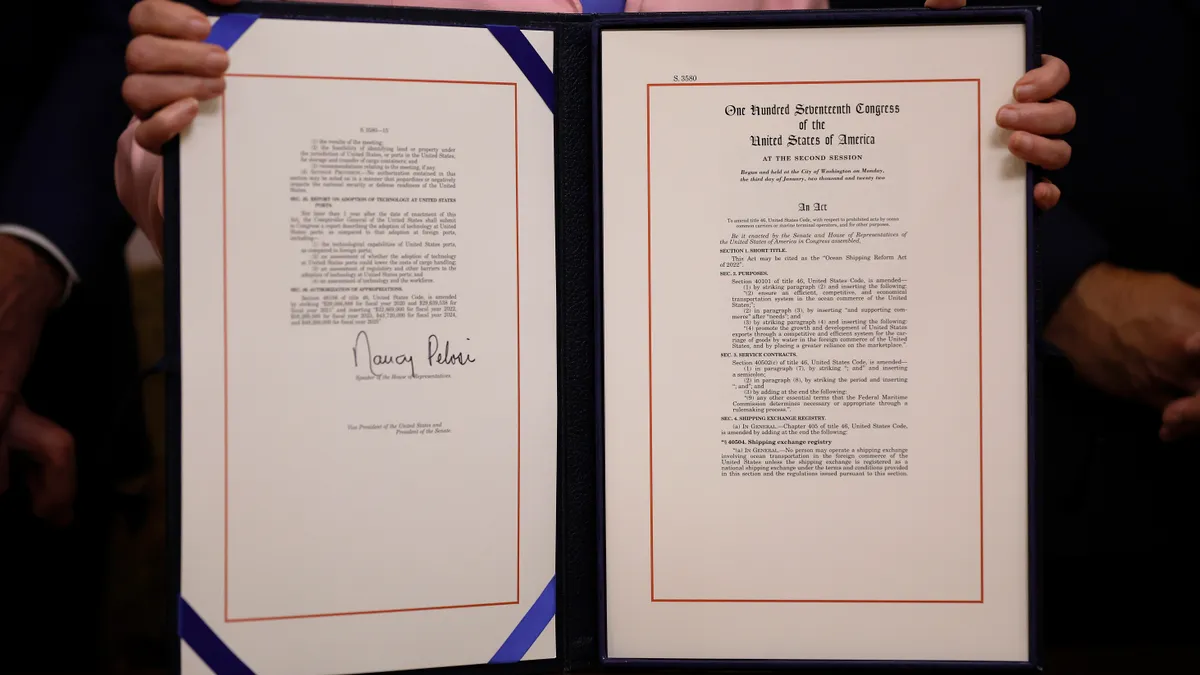The Federal Maritime Commission published a final ruling last week on its framework to determine when carriers are refusing cargo space accommodation.
The rule is part of requirements created by the Ocean Shipping Reform Act of 2022, according to a July 22 press release.
Before OSRA was signed into law, several shippers submitted complaints to the FMC about carriers denying them vessel space. During the pandemic, agriculture exporters had containers left behind, as carriers favored shipping empty containers to Asia amid high demand for foreign goods.
In September 2022, the federal agency sought public comment on what constitutes an “unreasonable” refusal of cargo space. Now, the FMC’s final ruling makes two clear distinctions when it comes to determining if a violation from a carrier has occurred.
- The ruling applies where an alleged refusal by an ocean common carrier takes place during the “negotiation” phase of a transaction.
- The ruling applies if an alleged refusal takes place after the negotiation phase and during the “execution” stage.
“An ocean carrier has to be willing to negotiate with you. They can’t just turn you down for a particular reason,” FMC Chairman Daniel Maffei said in a June The Freight Buyers’ Club podcast.
Some examples of unreasonable conduct include insufficient notice of scheduling changes, as well as inaccurate and unreliable vessel information, according to the final rule shared on the Federal Registar by the FMC.
The final rule becomes effective on Sept. 23, with an exception for two sections still under review by the FMC regarding the requirement that ocean carriers file documented export policies to the agency. These documented export policies contain information on pricing strategies, services offered, strategies for equipment provision and descriptions of markets served, according to the release.
While the FMC shared the final rule, each shipper complaint is reviewed on a case-by-case basis and not all refusals will constitute a violation.
“If an ocean common carrier can prove there was a reasonable basis for refusing to negotiate or carry cargo, their conduct will not be found in violation of the law,” the FMC said in the release. “The rule establishes non-binding and non-exhaustive examples and considerations of unreasonable behavior the Commission may use in evaluating allegations that an ocean common carrier violated the law.”












